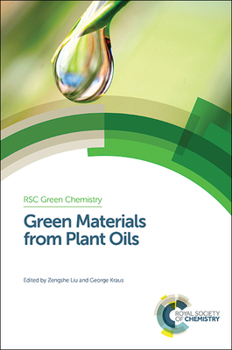Green Materials from Plant Oils
Finding alternatives to fossil feedstocks is increasing in importance with the challenges of global warming, increasing oil prices and depleting fossil fuel reserves that we currently face. Today, plant oils are important renewable raw materials for the chemical industry and are heavily used for surfactants, cosmetic products and lubricants. This book covers the green chemistry of products and intermediates synthesised from plant oils. Photo-initiated polymerisation and polymerization of vegetable oils in environmental media are covered as well as click reactions to chemically modify vegetable oils. Useful products from plant oils such as polymers, biomaterials, biofibres and lubricants, as well as their further applications, are described. This book is a valuable resource for researchers in academia and industry, biomass producers and suppliers and manufacturers of end-products.
Format:Hardcover
Language:English
ISBN:1849739013
ISBN13:9781849739016
Release Date:November 2014
Publisher:Royal Society of Chemistry
Length:306 Pages
Weight:1.40 lbs.
Dimensions:0.9" x 5.5" x 10.2"
Related Subjects
Engineering Science Science & Math Science & Scientists Science & Technology Technology












